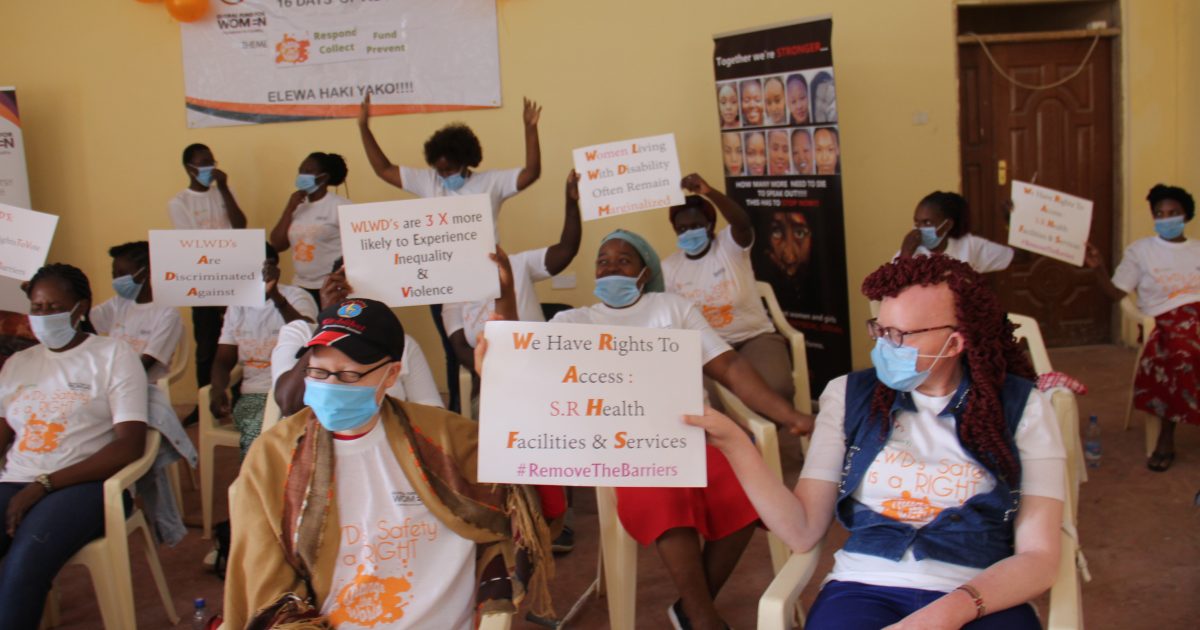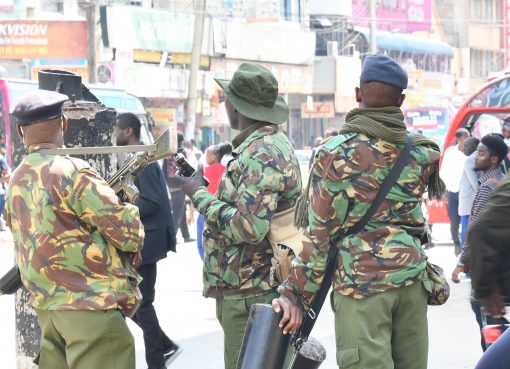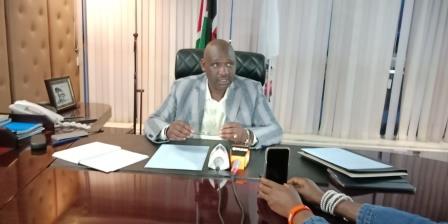A significant proportion of Persons Living with Dsabilities (PLWD) in Nakuru County do not know their tax exemption status leading to reduced savings from their income, Executive Director of the African Young Women Initiative Ms Fidelis Karanja has said.
Ms Karanja observed that most PLWDs did not know that the law protects them from discrimination and undignified treatment when they seek services at both private and public health facilities.
Speaking when the organization joined over 200 women to mark the end of 16 days of Gender Activism in Nakuru, Ms Karanja cited numerous instances where physically challenged women were subjected to embarrassing questions particularly when they visited health facilities to seek family planning, maternity and prenatal services.
“We are working closely with both county, national government and community based organizations in a drive to educate PWLDs on their constitutionally guaranteed rights. They are free to make choices about having children without owing anyone an explanation.
“A drive to have them registered so that they may benefit from tax exemptions and license waivers has been launched,” She stated.
Ms Karanja explained that most of PLWDS were unaware that the law had exempted them from paying taxes for monthly earnings of Sh150,000 and below and Sh1.8 million annual income from organizations owned by people with disability since the exemption policy was implemented in April, 2010.
“If you are a person with disability you get up to the first Sh150,000 tax free but only few are aware of this. We are enlightening them on this,” stated the Executive Director.
The Coordinator of the Council for Persons Living with Disabilities in Nakuru Mr Steven Ogutu said both levels of government should ensure that that PLWDs are economically empowered through Access to Government Procurement Opportunities (AGPO), the programme that facilitates persons with disabilities to participate in government procurement, if they are not tax compliant.
He said following the outbreak and spread of Covid-19 most PLWDs had missed out on opportunities to supply sanitizers, face masks and Personal Protective Equipment as tenders had been issued to established business enterprises.
Mr Ogutu called on the government to review the law further and exempt businesses operated by PLWDs from paying Value Added Tax.
“With the AGPO programme, PLWDs are entitled to get 30 per cent of government tenders. You cannot get them if you are not compliant on various things with tax compliance being one of them. We want the government to put us on an equal footing with others,” the coordinator said.
To benefit from the tax exemption, Mr Ogutu pointed out that individuals have to first register with the National Council for Persons with Disability (NCPWD) where all tax-relief applications will have to be reviewed before they are forwarded to the KRA’s domestic tax department.
“You have to get a certificate from the NCPWD and then you bring it to KRA to enjoy the exemption. Thousands of people with disabilities still pay tax on their income while unaware of the exemptions they are entitled to,” he stated
Damaris Karori, a person living with disabilities called on both the county and national government to employ sign language interpreters in public health facilities as most people with hearing difficulties were not getting proper services due to communication barriers.
To ensure disabled people are treated with dignity, Ms Karori urged the County Physical Planning Department to treat all construction plans of buildings that lack disability friendly facilities as non-compliant.
“As a country, we must rethink how we treat persons with disabilities in terms of access to public transport and public buildings. A unit within the Department of Social Services should be formed to inspect existing buildings and give notice to those lacking these facilities to comply within a specified period,” she added.
Syphrose Njambi petitioned the county government to consider supplying sun screen lotions to persons living with albinism at Ward level.
Ms Njambi said that following the onset of Covid-19 supplies of free sunscreen lotions at the Nakuru Level 5 Teaching and Referral Hospital had dwindled.
Ms Karanja said PLWD were also exempted from paying duty for importation of vehicles modified for their use or assistive devices like wheelchairs, walking sticks among others.
“If you are a person with any form of disability and you want to import a vehicle or assistive devices, all are duty free,” she said.
According to official data, as at 2010, Kenya had an estimated four million people with various forms of mental and physical disabilities, but with only a fraction holding formal jobs.
She reiterated that the ongoing campaign against Gender Based Violence (GBV) campaign is aimed at sensitizing Kenyans against committing acts of violence and murder against women and girls.
By Jane Ngugi/Dennis Rasto




